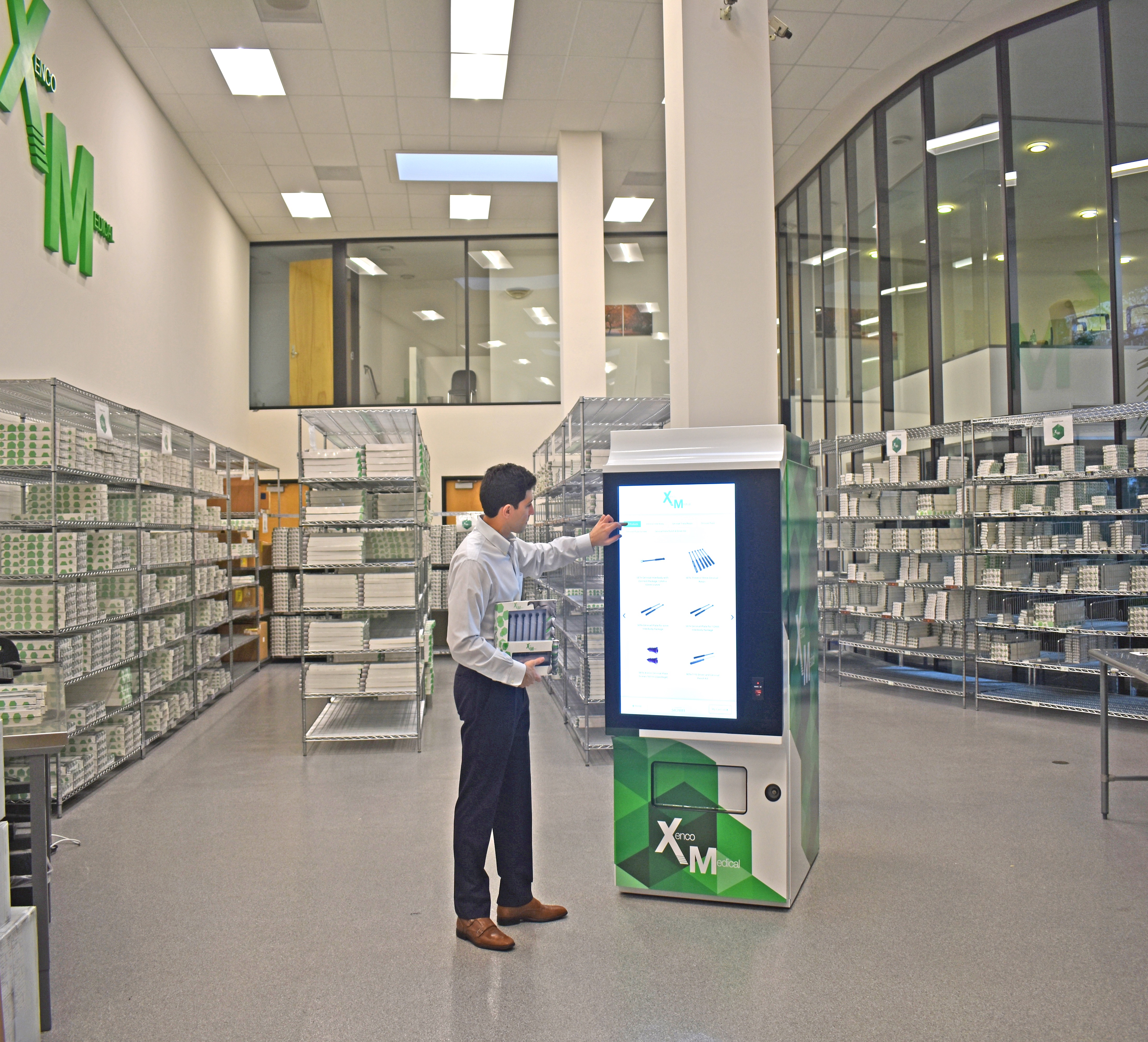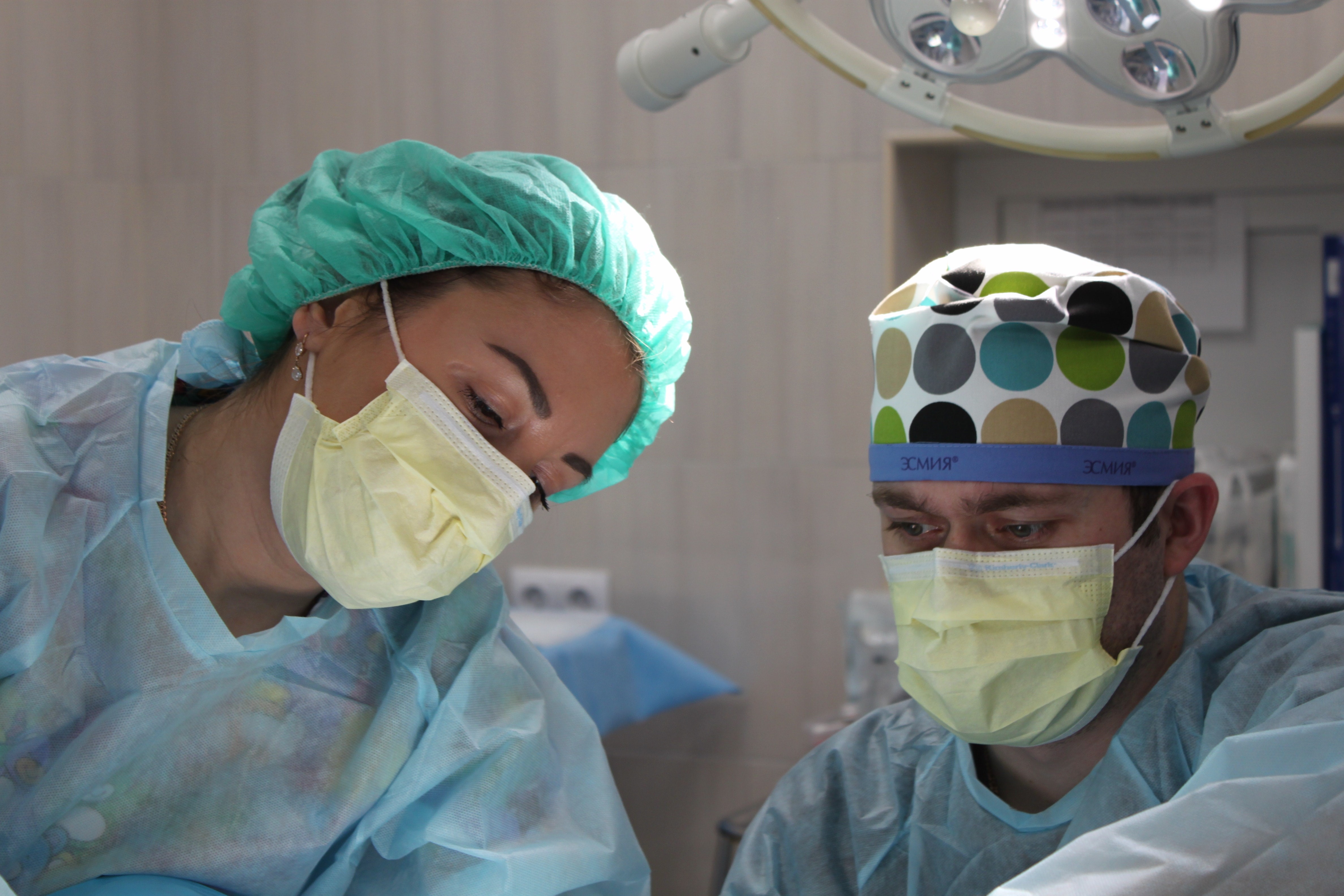There is no denying that the medical field is full of complexities. Hospitals don’t merely have the responsibility of ensuring great health outcomes for their patients. They must also find ways to decrease their own expenses and improve operational efficiency without compromising the quality of their service.
One of the biggest challenges facing hospitals is an aging population. In fact, Business Insider reports that in the United States, people over the age of 65 are expected to outnumber children by the year 2035, resulting in ever-increasing demand on the medical system.
This won’t just present logistical challenges as more procedures are scheduled — it will also require improvements to surgical systems themselves. The good news is that intelligent machines are poised to make a positive impact in both areas.
To learn more about this, I had the opportunity to interview Jason Haider, founder and CEO of Xenco Medical to learn about how his company’s introduction of surgical vending machines and single-use instruments is improving hospital procedures.
Inefficiencies In the Current System
For Haider and his team, the big why behind the introduction of their intelligent products and machines stems from recognizing inefficiencies posed by current hospital systems.
“When it comes to surgery, the vast majority of logistical issues emanate from the current sterilization process. It’s a highly inefficient process with pitfalls that have led to delays, and in more unfortunate cases, infection,” Haider says.
Just how long does the current sterilization process take?
According to Haider, “The post-surgery process takes an average of 3.5 hours, involving hundreds of contaminated instruments and implants. This includes delivery of the contaminated systems to central processing, disassembly of the instruments, hand washing followed by machine washing and finally reassembly followed by steam sterilization.”
This intensive process isn’t just time-consuming — because each of these steps is undertaken by a fallible human being, there is significant risk for mishaps that increase operating expenses.
“Each step in this process has room for error, which can cause further delays or even surgical site infections,” Haider explains. “A seemingly minor oversight can have big repercussions that prove costly for both the hospital and the patient.”
Even when sterilization procedures go according to plan, multi-use instruments can still prove costly. For example, a study focused on gynecological surgery concluded that while surgeons had an average of 184 available surgical instruments to choose from, most procedures used less than 25 percent of the available tools. With an average processing cost of $3 per instrument, this represents significant wasted costs with each procedure.
How Intelligent Machines Are Making an Impact
So how is Haider’s team making a difference?
By the introduction of a smart, interactive vending machine that dispenses single-use surgical tools. As Haider explains, “By dispensing and tracking our calibrated, single-use instruments, the surgical vending machine plays an important role in preventing delays due to a cumbersome sterilization process, including enormous savings in turnover time by eliminating the need to sterilize traditional instruments and implants after each procedure.”

These vending machines are wi-fi enabled and utilize a virtual assistant (“Ezra”) that answers questions regarding various surgical products. The machines can even send real-time updates to Xenco Medical’s headquarters, providing alerts when tools or implants are running low.
More importantly, however, the introduction of single-use instruments eliminates the risk of surgical site infections resulting from contaminated instruments.
All too often, studies have found that allegedly “clean” instruments had not been properly sterilized, even in less invasive procedures. For example, one study found that improperly sterilized optometric equipment resulted in outbreaks of endophtalmitis among patients, a severe infection that can lead to blindness.
Single-use instruments protect patients by ensuring that the tools used to perform their procedure have never been used on anyone else — nor will they be used again after the procedure.
Of course, another significant advantage of this intelligent vending machine system is its ability to lower costs for medical providers. “On-demand availability of sterile-packaged surgical systems through the interactive machine allows for significant optimization of processes while lowering costs,” Haider notes.
“We’ve found this to be consistent among both hospitals and outpatient surgery centers.”
Medical providers who can avoid the lost time and monetary expenses of sterilizing equipment will enjoy great savings in the long run. While purchasing new instruments for each procedure may take some getting used to, it ultimately proves to be a more efficient system overall — especially in light of the fact that surgical tools are often misplaced or broken during sterilization, requiring the purchase of additional equipment anyway.
Potential for the Future …
It is clear that innovations like a surgical vending machine and the implementation of RFID technology in single-use instruments are only the tip of the iceberg in terms of how new tech can improve hospital logistics and systems. As more hospitals begin to adapt these tech tools, they will become more efficient and better equipped to deliver high-quality cost-efficient care.
As these and other advances fuel the future of healthcare, the potential is truly limitless — but only if facilities adopt these resources. As smart machines take on a larger role in the healthcare system, hospitals and other facilities will be better equipped to manage their supply chain and calibrate their processes.


